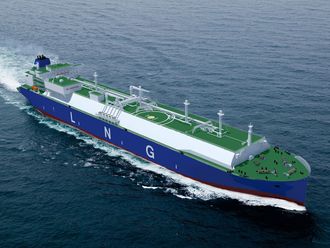New York: Oil rose on Friday to post the biggest quarterly gain since the beginning of 2011 as the growing threat of a disruption of Iranian exports added to supply concerns.
Oil markets, on edge about the potential loss of exports from Iran, briefly spiked in afternoon trade after the Obama administration said there is enough global oil supply to allow countries to cut imports from the second largest exporter of the Organisation of Petroleum Exporting Countries (Opec).
Obama is required by law to determine by March 30, and every six months after that, whether the price and supply of non-Iranian oil are sufficient to allow consumers to "significantly" cut their purchases from Iran.
The impact of US and EU sanctions, aimed at curbing Tehran's nuclear ambitions, pushed up international benchmark Brent crude by more than 14 per cent over the past three months, prompting the US, Britain and France to mull releasing oil from their emergency reserves.
Obama said that increased production by some countries as well as "the existence of strategic reserves" helped him come to the conclusion, which will allow Washington to move closer to sanctioning countries who still buy Iranian oil.
Pinch of sanctions
A Reuters poll of Opec production showed Iranian supplies have already felt the pinch of sanctions, adding to losses from Syria, Yemen, South Sudan and the North Sea. Overall production from the producer group rose in March, however.
"The Obama news caused an initial pop up, but then there was a realisation it wasn't going to happen immediately and there's been a shift from focus on a threat to close the Strait of Hormuz to whether or not reserves are going to be released," said Dominick Caglioti, broker at Frontier Trading Co. in New York.
Brent May crude traded up 49 cents to settle at $122.88 a barrel. Prices were up $15.50 since the end of December, the biggest quarterly rise since the first quarter of 2011.
US May crude settled at $103.02 a barrel, up 24 cents on the day and $4.19, and up over 4 per cent from last quarter. Despite the quarterly gains, Brent has traded mostly between $122 and $127 a barrel over the past five weeks, as traders balance supply losses against weak demand in the West and worries about the Eurozone.











